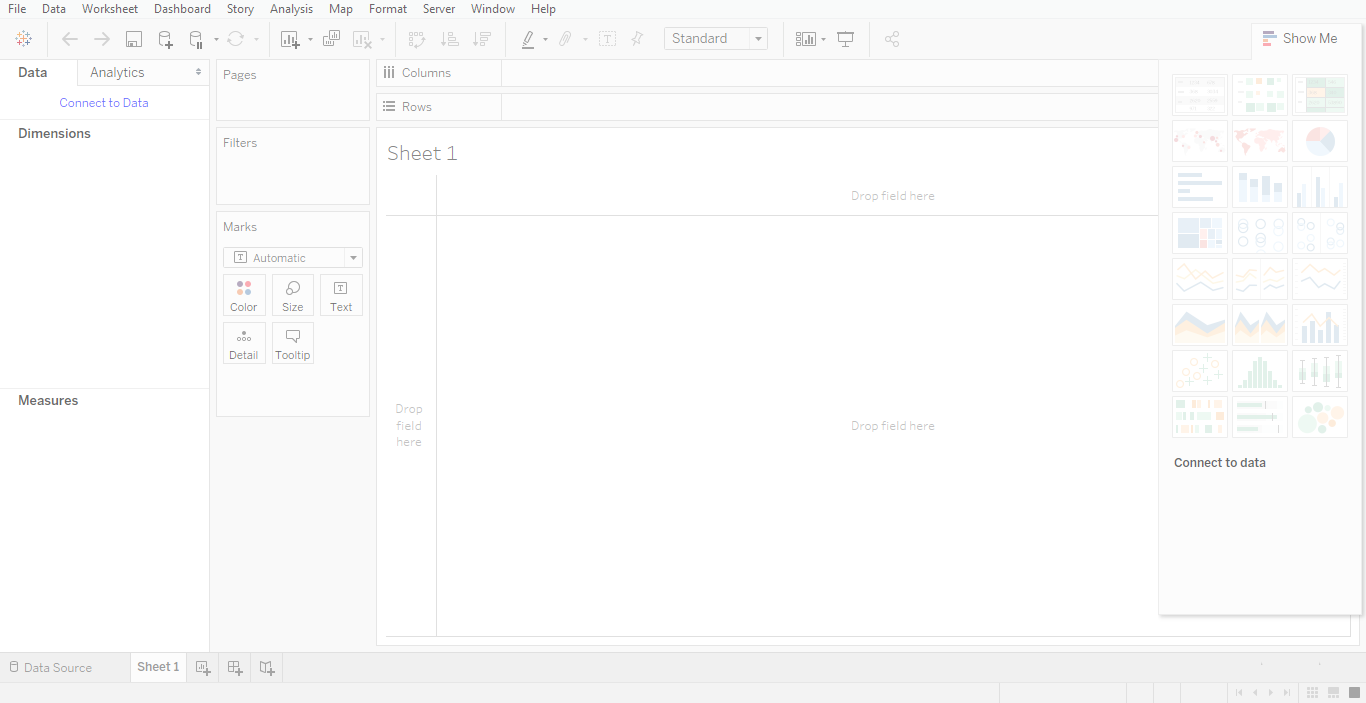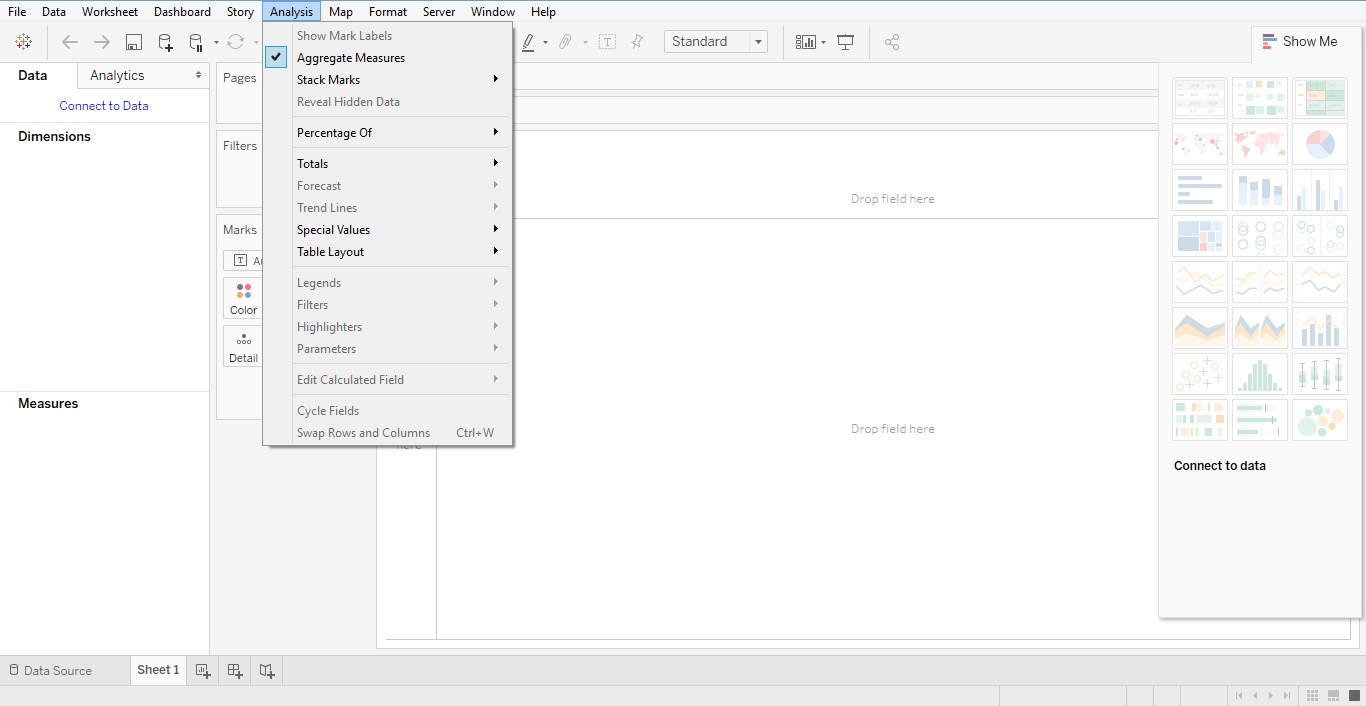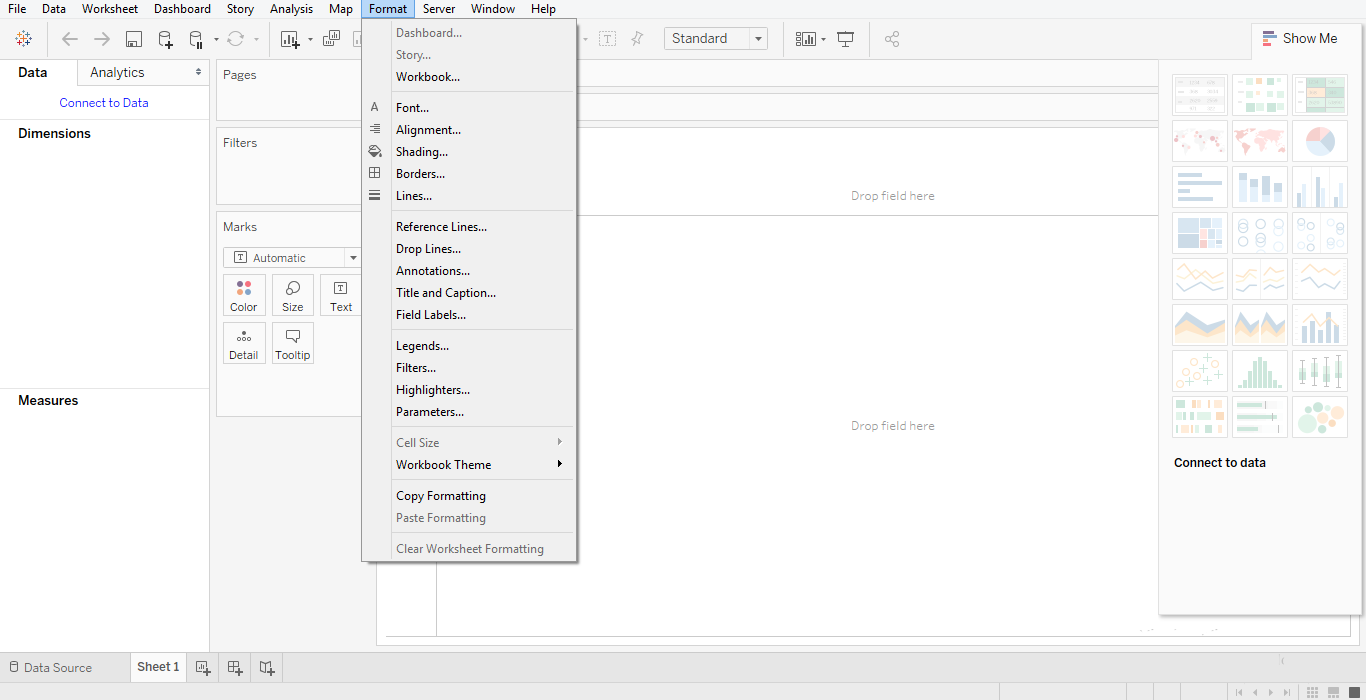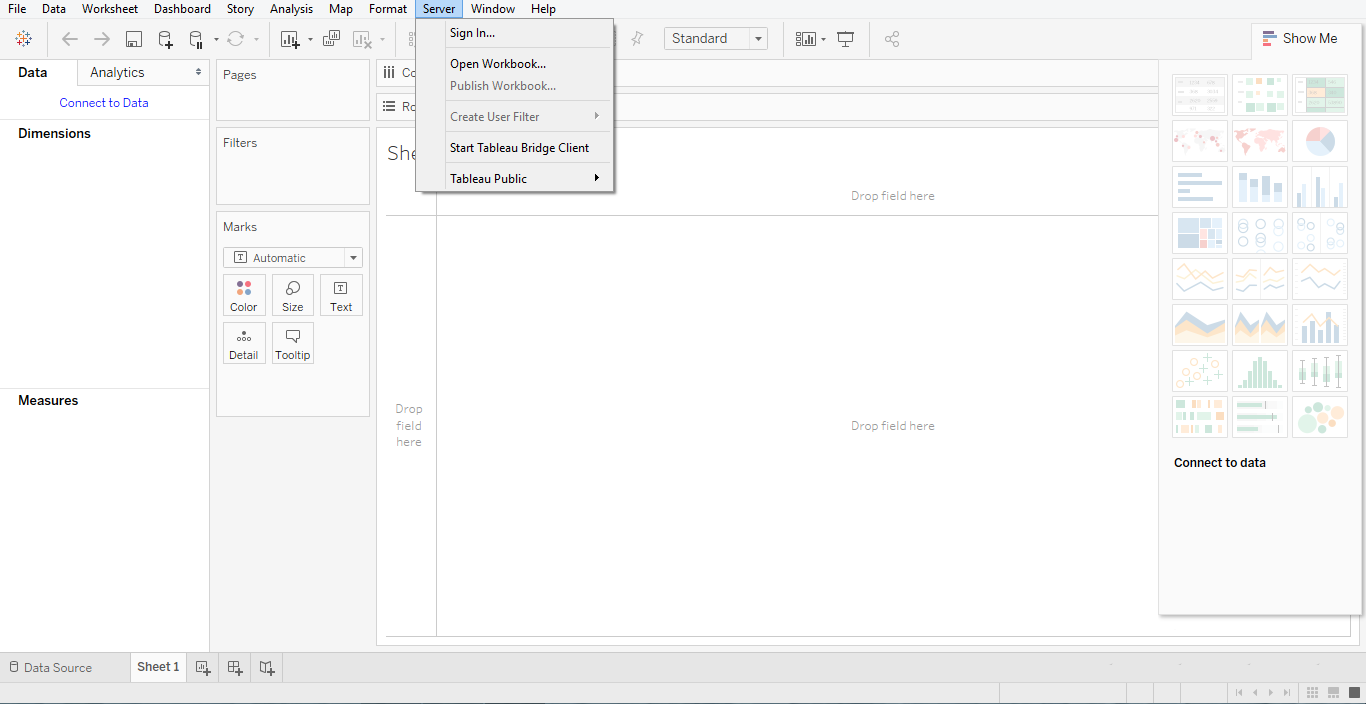Tableau Navigation Sheet – Tableau Main Commands
FREE Online Courses: Click for Success, Learn for Free - Start Now!
1. Tableau Navigation – Objective
In previous Tableau tutorial we studied the introduction of the tableau, in this section, we will cover different tableau navigation highlights in an interface. On running tableau work area, you get the menu at the best which demonstrates every one of the orders we can explore. We should open a clear exercise manual and experience the different essential highlights under every menu.
2. Introduction to Tableau Navigation
Most noteworthy, tableau offers a lot of command options to the users to make it more effective and user-friendly.As a result, we can use them to run different operations on Tableau. The main commands of the menu, that tableau offers are
- File menu
- Data menu
- Worksheet menu
- Dashboard menu
- Story menu
- Analysis menu
- Map menu
- Format menu
- Server menu
Do you know the DIfferent types of Tableau Joins?
3. Menu Commands in Tableau Navigation
On shutting the beginning window, you get the primary interface with all the accessible menu orders. They speak to the whole arrangement of tableau navigation highlights accessible in interfaces. Different areas of the menu have appeared in the accompanying outline. In addition, you can see a few subtle elements of every menu.
a. File Menu
This menu in tableau navigation utilize to make another tableau exercise manual and therefore open existing exercise manuals from both the neighbourhood framework and tableau server. It seems like the imperative highlights in this menu are
i. NEW – is normally used to create new files, a shortcut for the same is “ctrl+N”
ii. Open – is used to open old/saved files, a shortcut for the same is “ctrl+O”
iii. Close – is used for close current book
iv. Save – is used to save file and the shortcut key is “ctrl+S”
v. Save as – is used to rename the same saved file
vi. Export package – option is utilized to make a bundled exercise manual, which will impart to different clients
vii. Paste sheet – this option is used to paste old sheets workbook into present sheet workbook
viii. Workbook locale – used for set reports language
ix. Import workbook – is used when we want to import data from another workbook
x. Page setup – used for setup of a page
xi. Print and print pdf – is used to print the workbook
Follow the link yo know about Tableau Date Functions
b. Data Menu
Same as above, this menu in tableau navigation, is utilize to make new information source to bring the information for examination and perception. It likewise enables you to supplant or overhaul the current information source.
The critical highlights in this menu are as per the following
i. New data source – permits to see every one of the kind of associations accessible and look over it
ii. Refresh all extracts – when we update the data extract source there is a need of refreshing of data
iii. Edit relationships – option defines the fields in more than one data source for linking
iv. Replace data source – choice characterizes the fields in more than one information hotspot for connection
c. Worksheet Menu
This menu in tableau navigation use to make another worksheet alongside different show highlights, for example, demonstrating the title and subtitles, and so on.
The imperative highlights in this menu are as per the following
i. New worksheet – The option used to take new worksheet
ii. Show summary – permits to see the synopsis of the information utilized as a part of the worksheet, for example, tally, etc
iii. Run update – option updates the worksheet data or filters used
iv. Tooltip – demonstrates the tooltip while floating above different information fields
v. Show title, caption, card – are used to show them on worksheet
Also, Read – Tableau String Functions
d. Dashboard Menu
This menu in tableau navigation, utilize to make another dashboard alongside different show highlights, for example, demonstrating the title and sending out the picture, and so forth.
The vital highlights in this menu are as per the following
i. Format – sets the format as far as hues and areas of the dashboard
ii. Action – used to link to URLs or external sheets
iii. Export image – option exports an image of the Dashboard
Have a look at – How to Create a Tableau Dashboard?
e. Story Menu
This menu in tableau navigation, utilize to make another story which has numerous sheets or dashboards with related information.
The important features in this menu are as follows
i. Format – sets the layout in terms of colors and sections of the story
ii. Run Update – updates the story with the latest data from the source
iii. Export Image – option exports an image of the story
iv. Show backward/show forward – is used to look old worksheets
f. Analysis Menu
This menu utilize for breaking down the information shown on the sheet. The scene gives numerous out-of-the-case highlights, for example, figuring the rate and playing out an estimate, and so forth.
The critical highlights in this menu are as per the following
i. Forecast – shows a forecast based on available data
ii. Trend Lines – shows the trend line for a series of data
iii. Create Calculated Field – option creates additional fields based on a certain calculation on the existing fields
iv. Percentage – of an option is used to find a percentage of any data
v. Total – function is used to find the total of any data
vi. Special value – is used to input special kind of value
Read about – Tableau Data Sources
g. Map Menu
This menu in tableau navigation, utilize for building map sees in Tableau. You can also relegate geographic parts to fields in your information.
The important features in this menu are as follows
i. Geocoding – makes new geographic parts and appoints them to the geographic fields in your information
ii. Map layers – cover up and demonstrate outline, for example, road names, nation outskirts, and includes information layers
iii. Background image – helps setting images in the background
h. Format Menu
This menu utilize for applying the different organizing alternatives to upgrade the look and feel of the dashboards made. It gives highlights, for example, fringes, hues, an arrangement of content, and so forth.
The imperative highlights in this menu are as per the following
i. Borders – applies borders to the fields displayed in the report
ii. Title & Caption – assigns a title and caption to the reports
iii. Cell Size – customizes the size of the cells displaying the data
iv. Workbook Theme – applies a theme to the entire workbook
v. Alignment – is used for alignment of lines
vi. Lines – are used for types of lines
vii. Font – which kind of font you want to use
Let’s Explore Tableau Operators – Arithmetic, Relational, and Logical Operators
i. Server Menu
Server Menu is for doing login to the Tableau server on the off chance that you approach, and distribute your outcomes to others to utilize. We use it to get the exercise manuals that others distribute.
The vital highlights in this menu are as per the following
i. Publish Workbook – publishes the workbook in the server to use by others
ii. Publish Data Source – publishes the source data used in the workbook
iii. Create User Filters – creates filters on the worksheet to apply by various users while accessing the report
4. Conclusion
Finally, in conclusion in this tutorial we learned about the different options that are provided by tableau navigation for better functioning and display of the reports, these options, therefore, help us to make our presentations better and more appealing. Still, have a confusion or query, feel free to approch us!
See Also – Tableau Data terminology
Did you like this article? If Yes, please give DataFlair 5 Stars on Google












